When it comes to keeping your vehicle safe on the road, few components are as crucial as your brakes. But when that familiar squeal or grinding sensation starts to creep in, the question often arises: should you repair your existing brakes or opt for a full replacement? Navigating this decision can be a perplexing journey, balancing cost, safety, and longevity. In this article, we’ll explore the key differences between brake repair and replacement, helping you understand when a quick fix suffices—and when it’s time to invest in a brand-new set of brakes to ensure your peace of mind behind the wheel.
Table of Contents
- Understanding the Signs Your Brakes Need Attention
- Evaluating Brake Repair Options for Different Vehicle Types
- When Repair Makes More Sense Than Replacement
- The Cost Implications of Brake Repair Versus Replacement
- How Quality and Safety Factor Into Your Decision
- Expert Tips for Maintaining Brake System Longevity
- Q&A
- In Retrospect

Understanding the Signs Your Brakes Need Attention
When your vehicle starts exhibiting unusual behavior, it’s crucial to recognize early warnings that your braking system might be compromised. Common indicators include a persistent squealing or grinding noise, vibrations when applying the brakes, or a longer stopping distance. Additionally, a spongy or soft brake pedal feel or the illumination of the brake warning light on your dashboard often signals that something is amiss. Ignoring these signs can not only deteriorate your brake components faster but may also jeopardize your safety on the road.
- Squealing noises: Often caused by worn brake pads.
- Vibration: May indicate warped rotors.
- Brake pedal feel: A soft or sinking pedal can signal fluid leaks.
- Warning lights: Immediate diagnostics recommended.
- Reduced responsiveness: Indicates friction material degradation.
| Symptom | Possible Cause | Recommended Action |
|---|---|---|
| Squealing Noise | Worn Brake Pads | Brake Pad Replacement |
| Brake Pedal Vibration | Warped Rotors | Rotor Resurfacing or Replacement |
| Soft Brake Pedal | Brake Fluid Leak | Fluid Refill & System Check |
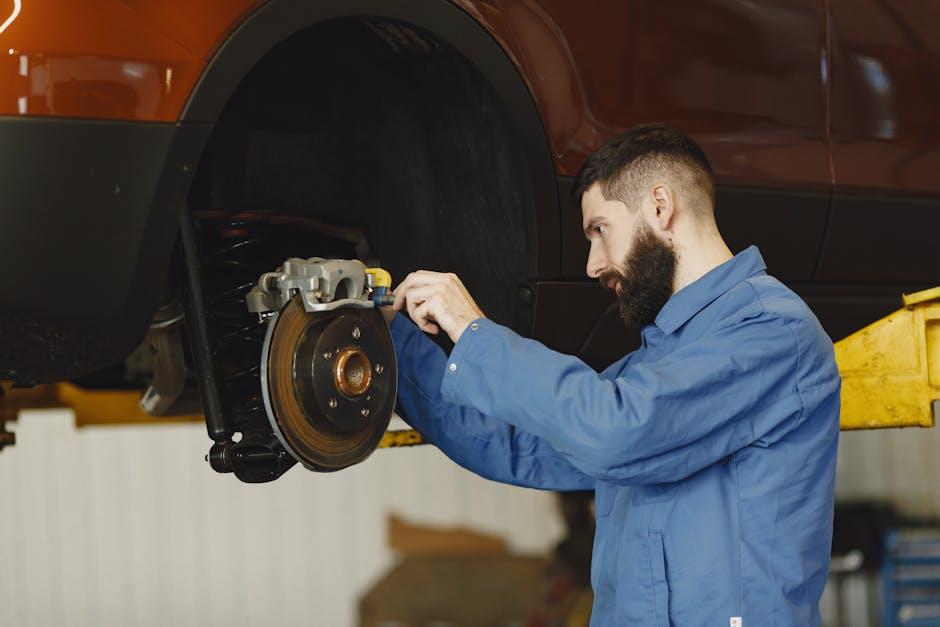
Evaluating Brake Repair Options for Different Vehicle Types
When deciding between brake repair and full replacement, it’s crucial to consider the type of vehicle you own, as different models respond uniquely to wear and tear. For example, compact cars with smaller brake systems often benefit from timely repairs, such as pad replacement or rotor resurfacing, which can extend the life of the brake components without the need for costly replacements. In contrast, heavy-duty trucks or SUVs generally endure more stress on their braking systems and may require more frequent full replacements to maintain safety and performance. Factors such as the vehicle’s typical load, driving conditions, and brake technology (such as disc or drum brakes) play pivotal roles in determining the best course of action.
To help streamline the decision-making process, consider the following overview tailored to common vehicle types:
| Vehicle Type | Common Brake Issues | Recommended Action |
|---|---|---|
| Compact Cars | Worn pads, minor rotor damage | Brake repair, pad replacement |
| SUVs & Crossovers | Rotor warping, pad wear under load | Pad replacement or rotor resurfacing |
| Heavy-Duty Trucks | Severe rotor wear, brake fade | Complete brake system replacement |
- Regular Inspections: Tailor inspection frequency to your vehicle type to catch issues early.
- Quality Parts: Use OEM parts designed for your specific brake system for optimal performance.
- Driving Habits: Aggressive braking may necessitate more frequent replacements, particularly for larger vehicles.
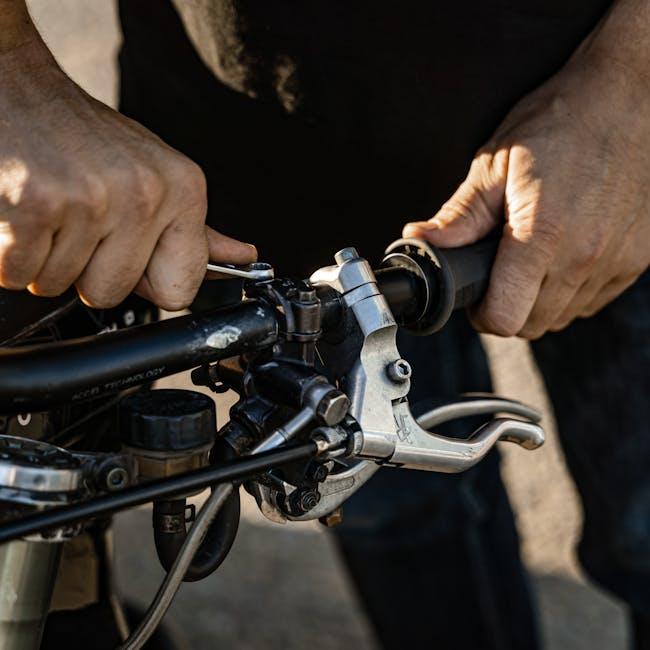
When Repair Makes More Sense Than Replacement
Opting for a repair rather than a full replacement is often the smarter choice when your brake issues are limited to minor wear or specific component failures. Consider this especially if your brake pads or rotors exhibit uneven wear patterns, surface glazing, or slight thinning. Repairing these issues can save you time and money, whilst maintaining the integrity of your braking system without compromising safety. Not to mention, timely repairs help prevent the problem from escalating into a costly replacement down the line.
Key scenarios favoring repair over replacement include:
- Brake pads still above the minimum thickness threshold
- Surface grooves on rotors that can be resurfaced
- Minor issues such as caliper sticking or brake fluid leaks
- Previous brake components in good overall condition
| Brake Component | Repair Viability | Typical Cost Impact |
|---|---|---|
| Brake Pads | Can repair if minimal wear | Low to Moderate |
| Rotors | Resurfacing possible if not too thin | Moderate |
| Calipers | Repair seals and pistons | Low |
| Brake Lines | Repair leaks or replace sections | Low to Moderate |
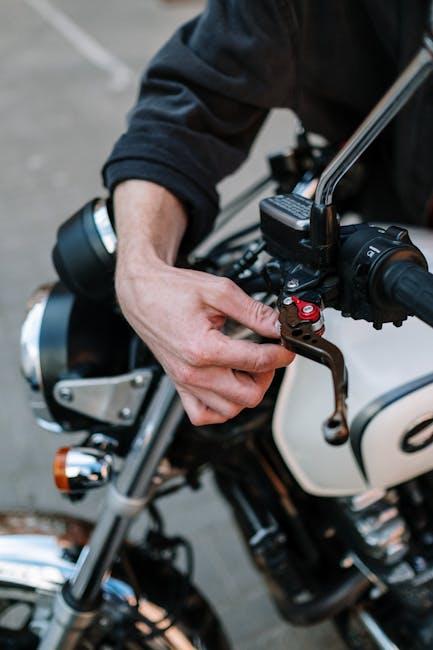
The Cost Implications of Brake Repair Versus Replacement
When deciding between brake repair and replacement, understanding the financial impact is crucial. Repairing brakes often targets specific components, such as brake pads or rotors, which can keep costs lower upfront. However, the savings might be temporary if underlying issues are not fully resolved. Repairs are typically less expensive in the short term but may require more frequent attention, especially if the braking system has multiple worn parts. Factors that influence repair costs include the vehicle type, labor rates, and the quality of replacement parts.
On the other hand, opting for a full brake replacement can seem more costly at the outset but can prove to be more economical over time. Complete replacements ensure all components work harmoniously, reducing the likelihood of recurrent problems and unexpected expenses. The table below highlights a simple cost comparison between common brake services:
| Service | Average Cost (USD) | Estimated Lifespan | Notes |
|---|---|---|---|
| Brake Pad Replacement | $150 – $300 | 30,000 – 70,000 miles | Quick fix for worn pads |
| Rotor Resurfacing | $40 – $70 | 20,000 – 30,000 miles | Extends rotor life |
| Full Brake System Replacement | $400 – $800 | 50,000+ miles | Comprehensive and long-lasting |
Ultimately, the choice between repair and replacement hinges on balancing immediate costs with long-term benefits. Considering the full scope of expenses—including parts, labor, and potential future repairs—helps craft a maintenance plan that aligns with your budget and safety requirements.
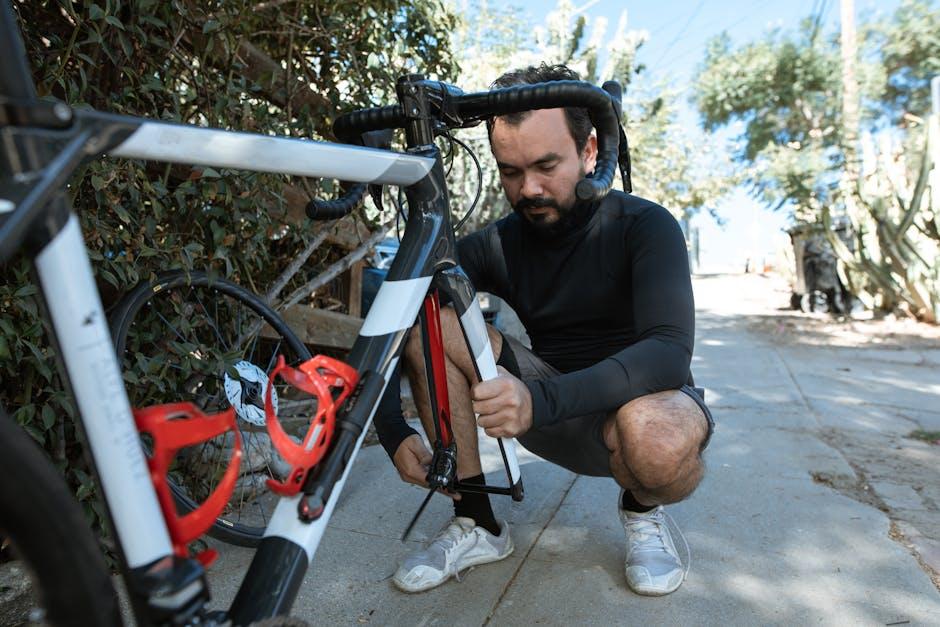
How Quality and Safety Factor Into Your Decision
When evaluating your options, the integrity of your vehicle’s braking system is paramount. Opting for a repair might seem cost-effective initially, but it’s crucial to ensure that the components are restored to their original safety standards. Poor-quality repairs or shortcuts can lead to uneven wear, reduced braking efficiency, and potential failures on the road. On the other hand, replacement often guarantees brand-new parts designed to meet or exceed manufacturer specifications, giving you long-term peace of mind and optimal stopping power.
Consider these essential quality and safety factors before deciding:
- Material Grade: Premium brake pads and rotors offer better heat resistance and longevity.
- Integrity Checks: Repairs should include thorough inspections for hidden damage or warping.
- Warranty Coverage: Replacement parts typically come with more extensive warranties compared to repairs.
- Safety Certifications: Check if the parts meet recognized industry standards like DOT or ECE.
| Factor | Brake Repair | Brake Replacement |
|---|---|---|
| Component Reliability | Variable | High |
| Durability | Moderate | Long-lasting |
| Safety Assurance | Dependent on repair quality | Consistently ensured |
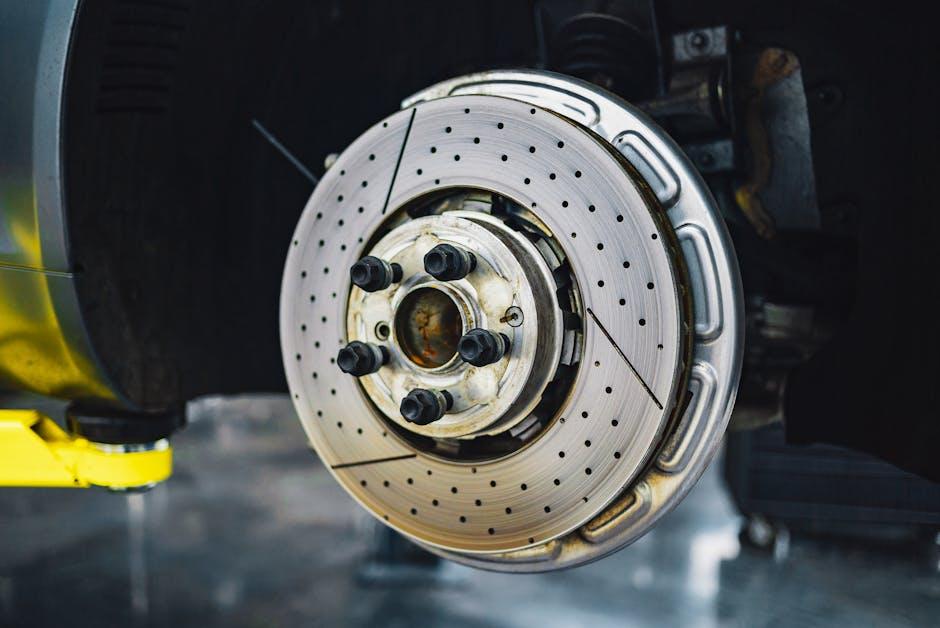
Expert Tips for Maintaining Brake System Longevity
Ensuring your brake system remains in optimal condition requires more than just occasional checks. Make it a habit to inspect your brake pads and rotors regularly, especially if you drive in stop-and-go traffic or hilly areas. Pay attention to any unusual noises such as squealing or grinding, which often signal early wear and the need for timely intervention. Additionally, maintaining clean brake components by removing dust and debris can prevent premature damage and help your brakes perform efficiently under all conditions.
- Use high-quality brake fluids and change them as per manufacturer recommendations to avoid corrosion and fluid degradation.
- Avoid harsh braking habits, such as sudden stops, to prolong the lifespan of pads and reduce rotor wear.
- Have your brake system professionally inspected during routine vehicle servicing to identify potential problems before they escalate.
| Maintenance Tip | Benefit | Recommended Frequency |
|---|---|---|
| Brake Pad Inspection | Prevents rotor damage | Every 10,000 miles |
| Brake Fluid Replacement | Maintains hydraulic integrity | Every 2 years |
| Cleaning Brake Components | Reduces wear and noise | During every oil change |
Q&A
Q: How do I know if my brakes need repair or a full replacement?
A: Listen closely for squealing or grinding sounds, feel for vibrations or a spongy brake pedal, and watch for reduced braking power. Minor noise or uneven wear often points to repair, while persistent issues, deep grooves, or severely worn pads (less than 3mm) suggest it’s time for a full replacement.
Q: Can I safely wait to repair brakes, or should I replace them immediately?
A: Safety is paramount. If issues are minor, repairing worn components might suffice temporarily. However, if braking performance is compromised or the rotor is warped or cracked, replacement ensures your stopping power remains reliable and consistent.
Q: What’s the cost difference between brake repair and replacement?
A: Repairs such as pad resurfacing or minor part replacements generally cost less upfront. Full replacement—pads, rotors, and sometimes calipers—requires a higher initial investment but can save money long-term by preventing further damage.
Q: How long can brake repairs typically extend the life of my braking system?
A: Proper repairs can add thousands of miles to your brakes when done early, especially if you maintain good driving habits. However, brake components naturally wear out, so replacement might become necessary sooner or later.
Q: Are there vehicle types or situations where replacement is always preferred over repair?
A: Heavy-duty vehicles or those used in demanding conditions (like mountain driving or towing) benefit from full replacement to maintain optimal performance. Similarly, if brake rotors are severely damaged or warped, replacement is usually safer than repair.
Q: Is it better to replace both brake pads and rotors at the same time?
A: Ideally, yes. Replacing both ensures even wear and consistent braking. New pads on worn rotors can reduce effectiveness and lead to premature wear, so pairing them together promotes smooth, safe stops.
Q: How can I extend the life of new brake components after repair or replacement?
A: Gentle braking, avoiding sudden stops, regular inspections, and keeping an eye on brake fluid levels all help. Clean driving translates into cleaner—and longer-lasting—brakes.
Q: Should I attempt brake repairs on my own, or hire a professional?
A: While some minor tasks are doable with the right tools and experience, brake systems are critical to safety. When in doubt, trust a professional technician to assess and perform repairs or replacements correctly.
Q: What innovations or technologies affect brake repair and replacement today?
A: Advances like ceramic brake pads, anti-lock braking systems (ABS), and electronic sensors mean repairs now often involve diagnostic tools and specialized parts. Modern vehicles may require professional servicing to interpret these systems accurately.
Q: What’s the bottom line when choosing between brake repair and replacement?
A: Your brakes are your lifeline on the road. Regular inspections help catch issues early when simple repairs can keep you safe. When damage or wear is significant, replacement ensures your braking system performs at its best—because when it comes to brakes, there’s no room for compromise.
In Retrospect
In the end, whether you lean toward brake repair or a full replacement, the key is understanding your vehicle’s unique needs and prioritizing safety above all. Like a well-tuned symphony, your brakes keep every journey smooth and secure. So, listen closely to the signs, consult the experts, and make the choice that keeps you confidently in control—because when it comes to braking, every stop matters.

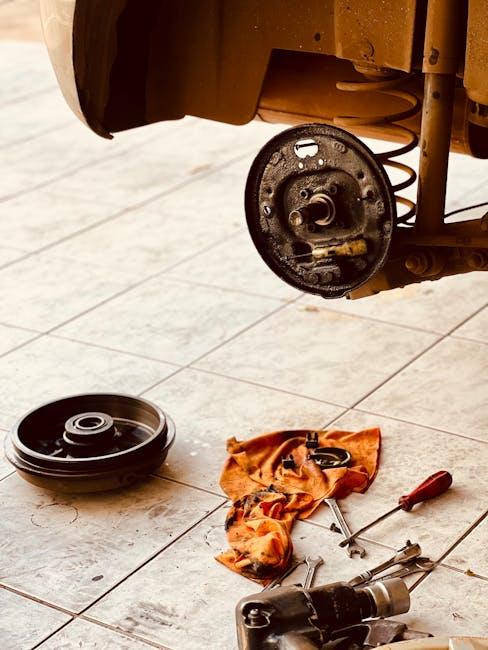
1 Comment
Thank you for your sharing. I am worried that I lack creative ideas. It is your article that makes me full of hope. Thank you. But, I have a question, can you help me?